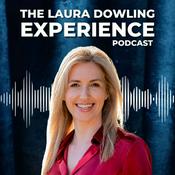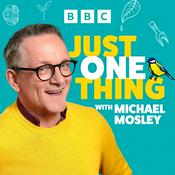248 episodes

Beatrice Birch and Inner Fire, the healing community offering an alternative to medication
14/12/2025 | 1h
Welcome to episode 237 with Beatrice Birch, who is a Hauschka Artistic Therapist and the founder of Inner Fire, a proactive healing community that offers a choice for adults to recover from debilitating and traumatic life challenges with minimal use of medications. Beatrice has worked as an artistic therapist and consultant since 1986 and over these years she has worked in schools, hospitals, rehab facilities and prisons in the United States, England and Holland, and has lectured as far afield as Taiwan. Inner Fire, founded by Beatrice in 2015, creates a framework for deep and lasting healing, through an intensive program that first stabilises a person in crisis, gradually replaces medication with holistic healing practices, addresses the core issues and develops skills for growing beyond these issues. In this episode I chat to Beatrice about her early work as an artistic therapist, how she came to work in this space and the events and experiences that led to starting Inner Fire. We chat about the Inner Fire approach to recovery and healing, what an average day looks like, how it all works and the process behind it. We chat about the role of choice, the importance of rhythm and how these things support the process of tapering medication and we chat about working with clay and water colours, the creative spirit and why Beatrice feels that mental health is a reductionist term for soul health. We all know the stats around mental health and they aren’t getting any better and if we want things to be different then we need to do things differently and Beatrice is doing exactly that, and like she’s says during our conversation, her work is simply about offering people a choice. It’s exciting to know that places like Inner Fire exist and it was wonderful to learn more about this incredible space and how it came to be. Learn more at INNER FIRE | Residential Healing Community | Addiction Recovery Without Medication You can connect with me on social media @propermentalpodcast or via www.propermentalpodcast.com. You can support the show and help me to keep it independent and ad free by buying a coffee at www.buymeacoffee.com/propermental Another great way to support the show and spread the word is to rate, review and subscribe on whatever platform you get your podcasts from. If you or anyone you know needs to find support in your local area, please go to www.hubofhope.co.uk Thanks for listening!

Live at Mental Wealth Festival 2025 with Sam Delaney and Shaun Flores
08/12/2025 | 1h 2 mins.
Welcome to episode 236 recorded live at the City Lit Mental Wealth Festival 2025! On Saturday 11th October I was joined by Sam Delaney and Shaun Flores for a live recording of Proper Mental which was titled ‘On Being a Man: Contemporary Masculinities & Mental Health’ We set out to explore what it means to be a man in 2025, the mental health challenges men face, and the resources and interventions available to help support and enhance their wellbeing and we did so in front of a sold out, live audience. Huge thanks to Ian Tucknott and City Lit for getting me involved, creating a great atmosphere and handling all the recording side of things. And another huge thank you to Shaun and Sam for their insight, wisdom and humour on the day! You can connect with me on social media @propermentalpodcast or via www.propermentalpodcast.com. You can support the show and help me to keep it independent and ad free by buying a coffee at www.buymeacoffee.com/propermental Another great way to support the show and spread the word is to rate, review and subscribe on whatever platform you get your podcasts from. If you or anyone you know needs to find support in your local area, please go to www.hubofhope.co.uk Thanks for listening!

Louise Beech on the the day her mother jumped from the Humber Bridge and the memoir it inspired
30/11/2025 | 1h 4 mins.
Welcome to episode 235 with Louise Beech, who is an award-winning author and writer who was making up stories in her head before she was even old enough to hold a pen. One of her many published works is the incredible memoir ’18 Seconds’ where she writes about the day her mother jumped from the Humber Bridge and somehow survived the fall. This event inspired Louise to look back at her life and recon with the impact that parental mental illness and alcoholism had on her childhood. In this episode I chat to Louise about her mother’s suicide attempt, the lifetime of madness that led to it and how her mother’s behaviour over the years impacted both her and her siblings. We chat about growing up in and out of the care system and her complicated relationship with her mum and we chat about unhealthy coping mechanisms, cutting ties, moving on and why trauma is not an excuse for harmful behaviour. We also chat about Louise’s lifelong passion for writing and how she refused to give up on her dream of becoming a published author despite years of trying and hundreds of rejections. Despite an incredibly challenging subject matter, it was a joy to chat to Louise! We really get in to some deep waters here but we do so with Louise’s trademark humour and openness. Learn more about 18 Seconds and all aspects of Louise’s work here: https://louisebeech.co.uk Connect on social media @louise_beech_swanson You can connect with me on social media @propermentalpodcast or via www.propermentalpodcast.com. You can support the show and help me to keep it independent and ad free by buying a coffee at www.buymeacoffee.com/propermental Another great way to support the show and spread the word is to rate, review and subscribe on whatever platform you get your podcasts from. If you or anyone you know needs to find support in your local area, please go to www.hubofhope.co.uk Thanks for listening!

Andy Ellis on feeling things deeply, dealing with rejection and This is England
23/11/2025 | 1h 1 mins.
Welcome to episode 234 with Andy Ellis, who is an actor, voice actor and film maker known for his roles in This is England, The Walk In and Supertato. He is also acting coach at Scene to Screen Acting School in Manchester. Andy found a passion for acting in high school and it was almost by chance that he landed a part in Shane Meadow’s BAFTA winning film ‘This is England’. He went on to star in a number of film and television productions as well as reprising his role as the lovable ‘Gadget’ in ‘This is England’ television series. In this episode I chat to Andy about growing up in Manchester, getting in to acting and why it’s particularly hard for working class people to find work in the creative industries. We chat about the coaching side of his work and how acting can help people to get in touch with their emotions, be part of a community and practice being vulnerable in a safe space. And we chat about dealing with rejection and navigating the feast or famine nature of Andy’s work, how going to counselling and learning to open up helped him to find a way through some dark times and we also talk about his recent short film ‘Blackpool’ which touches on themes of class, mental health and suicide. There’s loads of This is England chat in here too and it was very cool to chat to Andy about acting and mental health and everything in between! Follow Andy on social media: @andy_lp_ellis Scene to Screen Acting School: @scene2screenmcr Watch the ‘Blackpool’ trailer at: https://vimeo.com/1067269265?fl=pl&fe=sh You can connect with me on social media @propermentalpodcast or via www.propermentalpodcast.com. You can support the show and help me to keep it independent and ad free by buying a coffee at www.buymeacoffee.com/propermental Another great way to support the show and spread the word is to rate, review and subscribe on whatever platform you get your podcasts from. If you or anyone you know needs to find support in your local area, please go to www.hubofhope.co.uk Thanks for listening!

Finding meaning and answering life's big questions with Brother Richard Hendrick
16/11/2025 | 58 mins.
Welcome to episode 233 with Brother Richard Hendrick, who is a Capuchin Franciscan priest-friar, a mindfulness and meditation teacher, and a poet and author. For over 20 years, he has worked to bring the insights of the Christian Contemplative tradition to wider public awareness, particularly in relation to modern mindfulness theory and has worked as a retreat giver and chaplain in various settings, including schools, hospitals, and prisons. He is the author of two books about mindfulness and mediation and his poem 'Lockdown' went viral in the early months of the coronavirus pandemic in 2020 and was translated into twenty-six languages. In this episode I chat to Brother Richard about why he decided to join the priesthood, his path to becoming a monk and the origins of the Capuchin Franciscan brotherhood. We chat about the difference between meaning and purpose, how to find meaning in all aspects of life, facing our own mortality and looking for answers to life’s big questions. We also chat about small acts of service, getting curious, the importance of differentiating between self-centeredness and self-compassion and how to cultivate compassion for ourselves as well as others. This conversation with Brother Richard had quite a profound effect on me and I’ve found myself coming back to it several times since we spoke. I can’t wait to hear what you take from it if you choose to listen! Follow Brother Richard on social media @brorichard His blog can be found at Brother Richard's blog: mindful mystical musings. More about his books here: Brother Richard Hendrick | Hachette UK You can connect with me on social media @propermentalpodcast or via www.propermentalpodcast.com. You can support the show and help me to keep it independent and ad free by buying a coffee at www.buymeacoffee.com/propermental Another great way to support the show and spread the word is to rate, review and subscribe on whatever platform you get your podcasts from. If you or anyone you know needs to find support in your local area, please go to www.hubofhope.co.uk Thanks for listening!
More Health & Wellness podcasts
Trending Health & Wellness podcasts
About The Proper Mental Podcast
Listen to The Proper Mental Podcast, Just Between Us with Jennifer Zamparelli and many other podcasts from around the world with the radio.net app

Get the free radio.net app
- Stations and podcasts to bookmark
- Stream via Wi-Fi or Bluetooth
- Supports Carplay & Android Auto
- Many other app features
Get the free radio.net app
- Stations and podcasts to bookmark
- Stream via Wi-Fi or Bluetooth
- Supports Carplay & Android Auto
- Many other app features


The Proper Mental Podcast
download the app,
start listening.





































